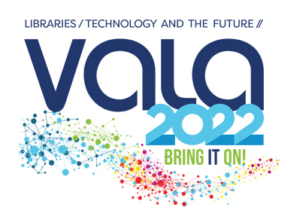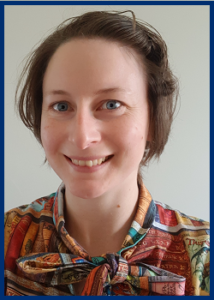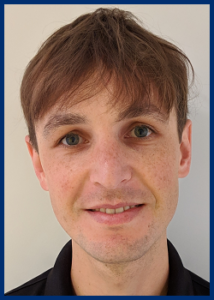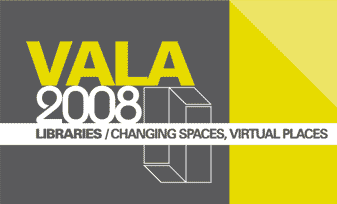The future is here, but are we there yet?
VALA2022 Lightning Talk
Keely Chapman
- Library Coordinator
- RMIT University Library
Please tag your comments, tweets, and blog posts about this session: #vala2022
Abstract
It’s said that fortune favors the bold, so with ageing institutional repository software to replace, RMIT University Library implemented Esploro, the newest offering from ExLibris in 2020. As members of the “early adopter” program, our brief was to contribute to the build of the Esploro software while using it as a fully-fledged IR solution.
In addition to the refresh of our IR software, RMIT University’s Research Office were seeking a successor to their Research Master service for Excellence in Research for Australia publications collection and verification.
While aiming to plant the seed and watch it grow, our Esploro implementation has provided a curious mix of disappointments and unexpected successes, of lessons learned and a crash course in how to work successfully with your vendor.
Why did we select Esploro? Being an existing ExLibris customer helped and the need for an IR that could integrate with other university systems, plus provide detailed analytical reporting were other good reasons. The promise of an eventual replacement to our existing unwieldy and difficult to maintain public researcher profiles, also provided a distinct step up from our previous repository software and the carrot on the end of the stick for researcher engagement (and hopefully supply of more accepted manuscripts for open access!).
The first stage was to confirm the project scope, our budget and what constituted a ‘minimal viable product’. When the time came to identify the multiple sources of our data, the need for all participants to be fully cognizant of the true breadth and depth of the project soon became apparent. What was originally seen as a simple IR replacement, became a combined dual system upgrade, with the obvious risk of becoming unmanageable all too likely.
Our vendor was not always familiar with the audiences and unique purpose of an institutional repository. I and my other ‘early adopter’ colleagues, were sometimes surprised by the new functionality released every month and sometimes underwhelmed. Ideas regarding how to minimize the display of record information and attached full text, often left us scratching our heads given the point of an IR is to promote, promote, promote! The only solution was providing feedback and lots of it.
Similarly, perfectly adequate searching and sorting functionality would suddenly vanish as the vendor had decided it wasn’t useful, without consulting the team of ‘early adopters’ (who would then inevitably request it’s reinstatement).
So, are we there yet? Esploro was partially developed at the time of implementation and it was expected RMIT University and several other participating institutions, would gradually develop services and functionality via a series of monthly upgrades, a process we now understand, will continue well into the future.
The most significant lesson for us has been around our underestimation of researcher interest. We’ve not managed to avoid frustrating and disappointing them while gradually developing Esploro. Clear, honest, and regular updates are essential for positive initial user/researcher experiences. Only then, can we be convincing in our message that the future really is here.
Biography
 Keely Chapman, as the Coordinator, Research Services Publishing, has primary responsibility for engaging and maintaining relationships across RMIT University to manage the operations of the RMIT open access research repository. A relative newcomer to Alma-based systems, Keely’s contributions have ensured the goals set for services offered by the RMIT Research Repository were met. With nearly 30 years experience, Keely made the leap from Liaison/Reference Librarian 12 years ago to the often unpredictable adventure world of institutional repositories and open access.
Keely Chapman, as the Coordinator, Research Services Publishing, has primary responsibility for engaging and maintaining relationships across RMIT University to manage the operations of the RMIT open access research repository. A relative newcomer to Alma-based systems, Keely’s contributions have ensured the goals set for services offered by the RMIT Research Repository were met. With nearly 30 years experience, Keely made the leap from Liaison/Reference Librarian 12 years ago to the often unpredictable adventure world of institutional repositories and open access.
![]()
This work is licensed under a Creative Commons Attribution-NonCommercial-NoDerivs 3.0 Unported License


 Amelia, Tanya, Steve and Angela work at RMIT University Library. Between them they manage the library reference services and the library concierge service, two services that require constant interaction to deliver well.
Amelia, Tanya, Steve and Angela work at RMIT University Library. Between them they manage the library reference services and the library concierge service, two services that require constant interaction to deliver well. Kieran Hegarty is a librarian and sociologist. He is a currently a PhD candidate at RMIT University and works on the ARC Linkage project ‘Representing Multicultural Australia in National and State Libraries’, run in partnership with the National Library of Australia (NLA) and three state libraries (New South Wales, South Australia, and Victoria). Kieran’s PhD research considers how the web has changed how national and state libraries build collections and how they are put to use. He is particularly interested in how automation and third-party applications used in web archiving and social media collecting are changing the nature of curation and documentary heritage. Through extended periods of fieldwork at the NLA and the State Library of New South Wales, Kieran is exploring the day-to-day production of two collections: the national Australian Web Archive and the New South Wales Social Media Archive. Kieran is passionate about taking experimental, creative, and collaborative approaches to research. Following his PhD, he hopes to continue his work in libraries, creative arts institutions, and sites of research, supporting ways to understand and challenge the power structures that shape how knowledge is created, disseminated, and authorised. You can find out more about Kieran’s research at his website (assemblingtheweb.com) or on Twitter @assemblingweb.
Kieran Hegarty is a librarian and sociologist. He is a currently a PhD candidate at RMIT University and works on the ARC Linkage project ‘Representing Multicultural Australia in National and State Libraries’, run in partnership with the National Library of Australia (NLA) and three state libraries (New South Wales, South Australia, and Victoria). Kieran’s PhD research considers how the web has changed how national and state libraries build collections and how they are put to use. He is particularly interested in how automation and third-party applications used in web archiving and social media collecting are changing the nature of curation and documentary heritage. Through extended periods of fieldwork at the NLA and the State Library of New South Wales, Kieran is exploring the day-to-day production of two collections: the national Australian Web Archive and the New South Wales Social Media Archive. Kieran is passionate about taking experimental, creative, and collaborative approaches to research. Following his PhD, he hopes to continue his work in libraries, creative arts institutions, and sites of research, supporting ways to understand and challenge the power structures that shape how knowledge is created, disseminated, and authorised. You can find out more about Kieran’s research at his website (assemblingtheweb.com) or on Twitter @assemblingweb. Publication patterns of Australian academics and the impact on open access publishing
Publication patterns of Australian academics and the impact on open access publishing